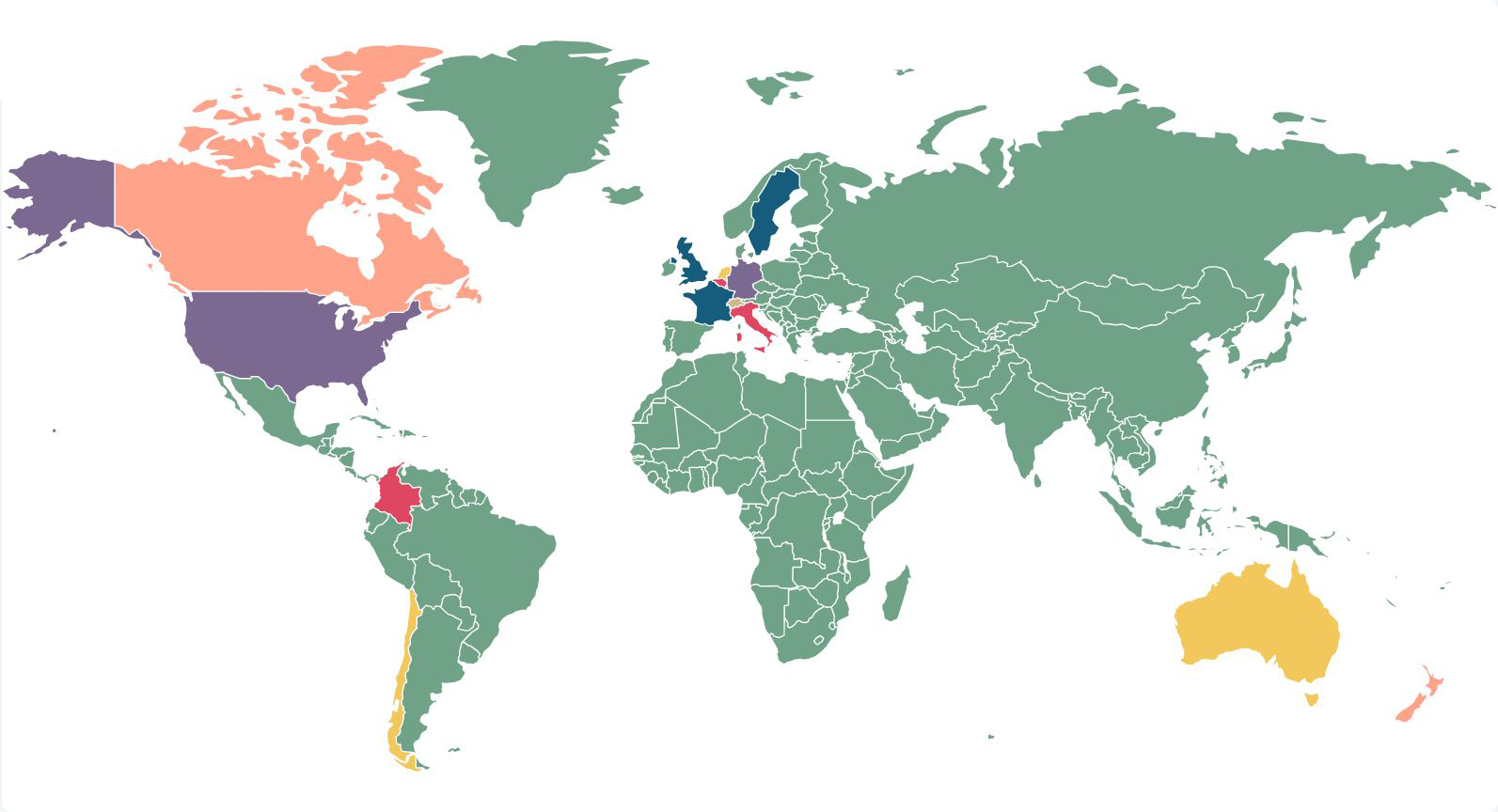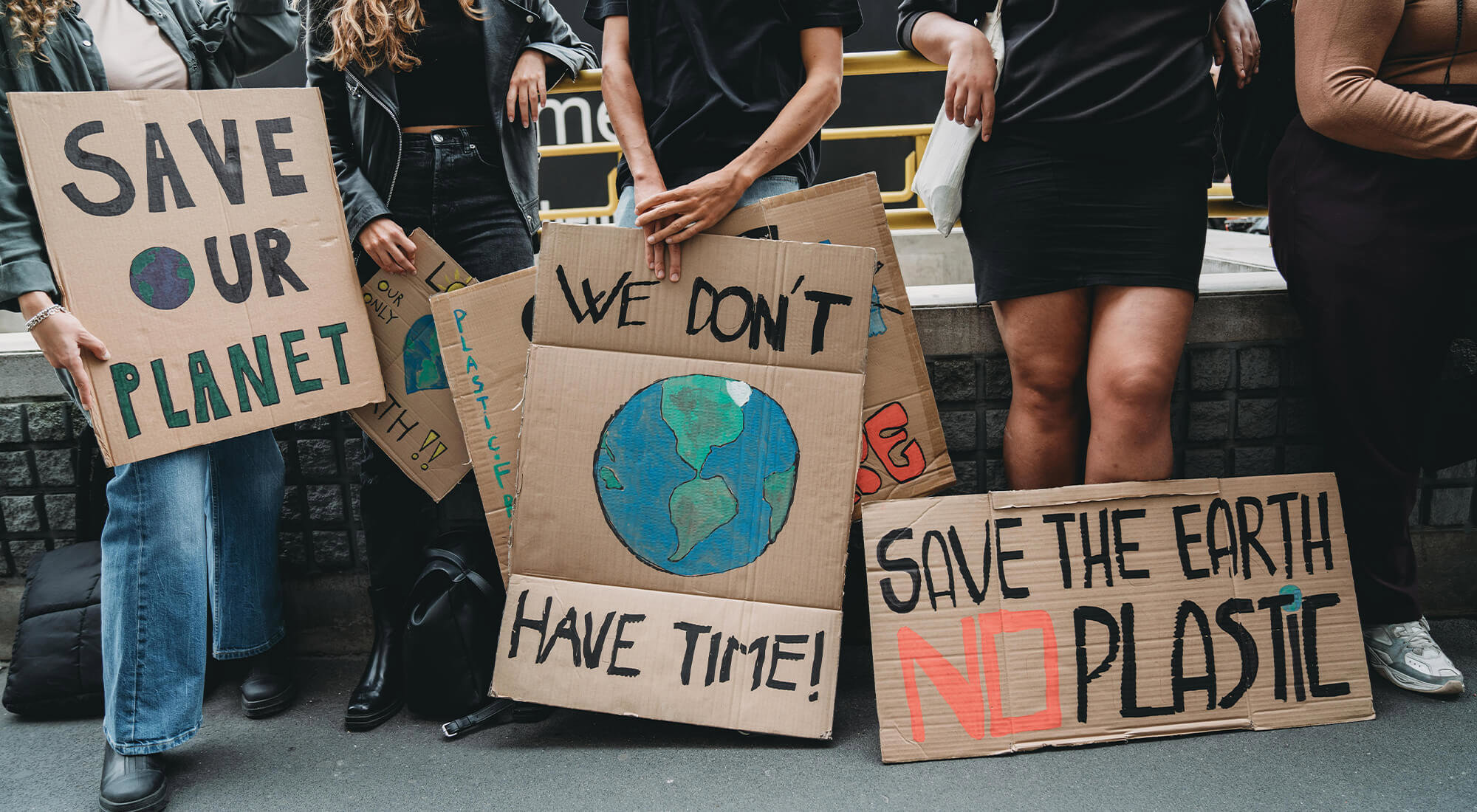Turning up the heat on climate action: Inter-American Court advises on human rights and climate change

The Inter-American Court of Human Rights (IACHR) has issued a historic advisory opinion affirming the human right to a healthy environment and climate.
Through IACHR Opinion OC-32/25 ("the Opinion"), an international court has for the first time comprehensively set out state obligations to respond to climate change in the context of human rights law, specifically the American Convention on Human Rights ("the Convention"). Applicable to members of the Organisation of American States ("States"), these obligations include clear and effective climate mitigation and adaptation plans, corporate regulation and international co-operation.
Nicolas Le Blanc, Partner, DAC Beachcroft in Santiago, Chile comments:
"The IACHR opinion will form an important part of future discussions on the construction of domestic climate, energy and manufacturing policies across the Americas. Noting that states' climate adaptation measures need to be as ambitious as possible, the IACHR emphasised the need for regulatory coherence across domestic law dealing with reduction or mitigation measures, both for states and companies."
Juan Diego Arango, Partner, DAC Beachcroft in Bogota, Colombia notes:
"The Opinion underlines the need for co-operation, highlighting that the challenges of the climate emergency cannot be addressed through the actions of a single state. It makes clear that States should ensure an equitable distribution of the burden associated with climate change, taking into account both their contribution to emissions and their technical capacity to respond."
Toby Vallance, Partner, DAC Beachcroft in London highlights:
"With COP30 on the horizon, this opinion will be highly influential, generating significant discussion as part of future climate negotiations. One of the key focus areas of COP30 will be Nationally Determined Contributions, with parties to the Paris Agreement expected to submit these updated targets by September 2025. This Opinion adds to the debate. For individuals, activists or organisations seeking to influence domestic and international climate policies, whether through litigation, lobbying or claims for financial compensation, the views of the IACHR will form a crucial part of their submissions going forward."
At the time of writing, and in the absence of an official English translation of the Opinion, all cited extracts are from a machine-translated version on the Climate Case Chart website [1].
Background
Requested by Chile and Colombia, the Opinion is one of a series of requests for clarity on climate-related human rights obligations issued by countries and territories in the Global South. Unlike Europe, where climate-related human rights actions are largely the territory of activist groups, this request was made by two nations in the Global South facing "the daily challenge of dealing with the consequences of the climate emergency" [2].
Completing the set of climate-related advisory opinions, the International Tribunal for the Law of the Sea issued an opinion [3] in May 2024, the International Court of Justice will issue an opinion later in July [4], and a request is progressing in the African Court of Human and People's Rights [5].
Obligations on states
Central to the Opinion is the finding that the current situation constitutes a 'climate emergency' caused unequally by states within the international community.
Addressing this situation will require urgent and effective actions for mitigation, adaptation and progression towards sustainable development. In addition, States must also focus on addressing "the structural circumstances that led to the [climate] emergency and to build resilience to cope with its effects." [6]
In order to comply with their general obligations under the Convention, States are expected to take all necessary measures to reduce climate-related risks to human rights, whether through mitigation or adaptation efforts. Actions or conduct which would slow or reverse climate-related mitigation/adaption measures should be avoided or only implemented under exceptional circumstances, duly justified and following a standard of reasonableness and proportionality. Finally, throughout any processes, enhanced due diligence should be undertaken, including the identification of risks, adoption of preventative measures and ongoing monitoring.
Reflecting on these expectations, the IACHR makes clear [7] that the Opinion must be considered by all countries in the Organisation of American States ("the OAS"), including the United States. Although a member of the OAS, the United States has a limited relationship with the IACHR, having not ratified the Convention or accepting the Court's jurisdiction. The general obligation on States to avoid slowing or reversing climate-related actions stands in marked contrast to actions taken within the first six months of the current US administration. Although we expect that climate activists will rely on this Opinion when pursuing climate-related litigation in the US, the prospect of it being considered in US climate policy would appear to be minimal.
Beyond those general obligations discussed above, the IACHR considered climate-related obligations specific to 'substantive' and 'procedural' human rights.
Substantive rights
The Opinion affirmed the right to a healthy environment derived from Article 26 [8] of the Convention, which requires States to adopt measures to allow the full realisation of economic, social, educational, scientific and cultural standards. For the first time, the right to a healthy climate was recognised as a consequence of the right to a healthy environment.
To ensure a healthy environment and climate, States have an obligation to mitigate their greenhouse gas emissions, including appropriate targets and strategies. These obligations also include ensuring regulatory coherence to prevent contradictions in State financing for activities generating emissions and their mitigation targets.
In addition, the Opinion considered those substantive human rights vulnerable to environmental degradation, justifying State intervention. These rights include the right to life, health, property, water, food, freedom of residence and culture.
In order to protect these rights, States have an enforceable obligation to define and update their national adaptation strategy, with the 'highest possible ambition'.
The Opinion further sets out comprehensive obligations to safeguard the aforementioned substantive rights. For example, in order to protect the right to freedom of residence, states are required to take measures to prevent "forced migration and displacement directly and indirectly from disasters and other impacts of climate change." [9] For States, the detailed analysis undertaken by the Opinion in respect of expected adaptation measures should help to inform domestic policy.
Procedural rights
In the context of climate change, States are expected to protect procedural rights, identified as the right to science, recognition of traditional and Indigenous knowledge, information, political participation, access to justice, and the right to defend human rights.
As part of these protections, States are obligated to take a variety of wide-ranging measures such as preventing misinformation via content governance policies [10], and to investigate and prosecute crimes against environmental activists [11] whether through arbitrary detention, disproportionate sentences or judicial harassment via strategic litigation (SLAPPs) [12].
Equality and non-discrimination
The Opinion also discusses the differential impact of climate change on vulnerable groups including Indigenous peoples, tribes and fishing communities. We note with interest the recent judgment of Pabai Pabai v Commonwealth of Australia, which proposed a novel duty of care on the Australian state to protect Torres Islanders from the current and projected impacts of climate change. Commentary on the observations of the IACHR and the Pabai Pabai decision will be available under the Climate theme on Informed Insurance in the near future.
Implications for high emitting corporates
Ultimately, the Opinion is directed at state obligations to protect human rights. It will influence climate mitigation and adaptation policies across many OAS member states. The Opinion is, therefore, highly relevant for climate activists as they pursue changes to national climate policies globally.
However, insurers and corporates should also take into account the observations of the IACHR regarding amendments and modifications to domestic legislation and regulatory frameworks to influence corporate behaviour.
Duncan Strachan, Partner, DAC Beachcroft in London comments that:
"Findings made by the IACHR and the Convention itself have had a considerable influence in the growing recognition of individual human rights across the Americas. In Mexico for instance, the findings of the IACHR have contributed to the judicial development of individual rights to compensation."
Therefore, insurers and corporates should be acutely aware that this Opinion is likely to shape the construction of domestic climate, energy and manufacturing policies across the Americas.
Previous climate decisions, such as Shell v Milieudefensie [13] have highlighted that courts will return the baton for challenging corporate behaviour to national legislators. The IACHR, in issuing this opinion, have arguably picked up the baton and handed it to national legislators accompanied with clear instructions. The IACHR recognised that State regulation of corporate behaviour will be 'fundamental' to tackling climate change-related human rights violations.
The obligation on States to prevent further climate degradation requires regulatory adequacy, including the need to establish legal obligations and consequences on companies whose activities have significant effects on the environment.
This can be achieved through the creation of regulatory frameworks including requirements for companies to have effective climate mitigation plans, supply chain due diligence obligations, disclosure obligations and measures to deter greenwashing and strategic litigation against human rights actions.
Consistent with Shell, the Opinion does not specify particular targets or responsibilities to be contained within these frameworks, as the specifics should be addressed in domestic laws or regulations. Nonetheless, the IACHR made clear that the "absence of scientific certainty cannot be used as an excuse to postpone the prevention of climate change and the reduction of adverse effects." [14]
States should establish "differentiated climate action obligations based on the current and historical contribution of companies to climate change and impose stricter duties on companies that engage in activities that generate higher GHG emissions." [15] Again, this is consistent with the Shell decision indicating that fossil fuel companies have an undefined 'special responsibility' to combat climate change.
In terms of those industries of specific interest for climate action obligation, the Opinion proposes the strict monitoring and control of "the exploration, extraction, transport and processing of fossil fuels, cement manufacturing [and] agro-industrial activities." [16] These activities should be subject to greater supervision, oversight and enforcement, which may include "ordering the cessation of activities… and effective compensation." [17] The Swiss claim of Asmania v Holcim, highlighted on our interactive climate change litigation map, involves an action against a concrete manufacturer, and the specific mention of other carbon-intensive industries will be of interest to insurers in assessing the future risk of climate-related litigation.
Nonetheless, the challenges in applying national or global emissions reductions targets to specific companies or industries were discussed in the Shell decision last year, in particular due to the complex nature of supply chains and corporate structuring. The Opinion, nonetheless, clearly sets out that any corporate obligations should be "based on the current and historical contribution of companies to climate change and impose stricter duties on companies that engage in activities that generate higher GHG emissions." [18]
In addition, States need to consider the transnational nature of many corporations, addressing issues relating to "parent companies, or companies that exercise control over others, according to the greenhouse gas emissions generated by their subsidiaries or by the companies they control." [19]
The content of the Opinion underscores the risks faced by high-emitting companies from international advisory opinions. The IACHR has not only recommended renewed efforts to invigorate national climate policies, but also clearly proposes increased regulation and enforcement of corporate behaviour. The Opinion is a clear statement of the expectation of a more robust regulatory environment for corporates in respect of their climate response, signalling greater scrutiny and accountability in the coming years.
[1] https://climatecasechart.com/non-us-case/request-for-an-advisory-opinion-on-the-scope-of-the-state-obligations-for-responding-to-the-climate-emergency/
[2] Request for an Advisory Opinion, January 9, 2023
[3] Advisory Opinion No.31 2024 International Tribunal for the Law of the Sea
[5] Petition Document, African Court on Human and People's Rights
[6] Paragraph 205 of the Opinion, all subsequent references to Paragraphs are those within the Opinion, unless otherwise stated
[7] Paragraph 39
[8] Article 26, American Convention on Human Rights
[9] Paragraph 422
[10] Paragraph 517
[11] Paragraph 581
[12] Paragraph 587
[13] Shell PLC v Milieudefensie and others: Court of Appeal overturns earlier groundbreaking CO2 emissions decision
[14] Paragraph 228
[15] Paragraph 350
[16] Paragraph 353
[17] Paragraph 126
[18] Paragraph 350
[19] Paragraph 350














